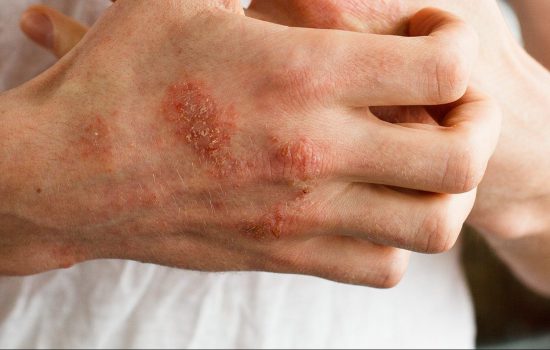Diagnosis
Effective treatment requires a correct diagnosis; however, it is not always easy to distinguish one type of eczema from another or from similar skin conditions. Your doctor has the medical training and experience needed to determine if eczema is present, and if present, which type. To diagnose eczema, your doctor examines the skin and asks about:
- When the skin condition first appeared
- Signs and symptoms, such as long-term pruritus (itching) or recurring dermatitis (inflammation of the skin)
- Certain circumstances that may aggravate the condition, such as excessively dry air or emotional stress
- Family medical history, including questions about close blood relatives who have asthma, hay fever, or eczema
- Personal medical history
In some cases, a skin biopsy may be performed to rule out other causes
